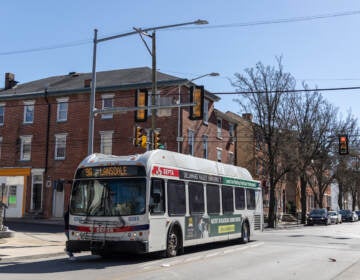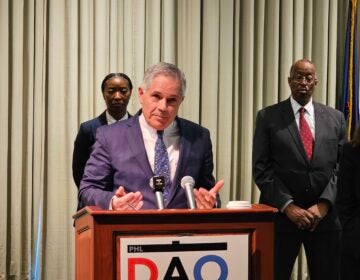Commonwealth Court reins in Philly DA on taking homes in drug cases
Listen
A Pennsylvania appeals court has put new restrictions on Philadelphia’s ability to seize property connected to alleged drug deals. The court created new standards for the controversial practice known as “civil forfeiture.”
The 5-2 Commonwealth Court ruling keeps alive a case involving a West Philadelphia homeowner, Elizabeth Young, who lost her house and car after her son was arrested in 2012 on a minor drug charge.
Young’s attorney, Jessica Anthony, said the Commonwealth Court ruling sets strong new standards for civil forfeiture, defining more clearly what can be seized from whom under what circumstances – standards that have been lacking to this point, she said.
“There had not been a ruling that really articulated what the standard is for property owners who have not been accused of criminal activity,” Anthony said.
“The main focus of the appeal in this case was that [under] the Eighth Amendment, which prohibits excessive fines, the taking of her house and her car were excessive in relation to the gravity of the offense,” Anthony said. “Ms. Young … had no knowledge [of any drug dealing]. There was no allegation that she was in any way involved in the underlying drug activity that her son allegedly was involved with.”
The ruling is good news for property-rights advocates such as Robert Frommer of the Institute for Justice in Washington, D.C,, who, in a class-action lawsuit, is representing a handful of other Philadelphia families in situations similar to Young’s. It rankles him that police and prosecutors nationwide have been using forfeiture to take the property of people who haven’t even been accused — much less convicted — of a crime.
“What we and other property rights advocates around the nation have said is, if you suspect somebody of criminal wrongdoing, charge them! Convict them! And then you can take their house using criminal forfeiture,” said Frommer. “But what you don’t get to do is an end run around the Constitution.”
Frommer calls civil forfeiture “policy for profit,” echoing criticisms of the practice that come from both the political right and left. He was delighted to learn earlier this month that Philly had decided to drop its attempts to seize his clients’ homes. But the city still ranks among the nation’s most aggressive users of the practice, Frommer said, bringing in more than $60 million from cash, cars and property over 10 years, and rarely returning it even in cases where no guilt is established.
“Getting it back is almost impossible,” said Frommer.
The Philadelphia district attorney’s office has 30 days to appeal the ruling, and officials say they’re not sure yet whether they will.
However, in a statement, a spokeswoman for District Attorney Seth Williams defended the practice, saying that forfeiture a key weapon in the city’s anti-crime arsenal.
“There are those who lobby against forfeiture, but no one can fairly discuss the issue if they ignore the real victims of drug trafficking. They are the law-abiding citizens who see their neighborhoods disintegrate,” wrote Tasha Jamerson. “We can’t address the problem simply by arresting and jailing our way out of it. These are the people who will suffer if laws are changed to place excessive restrictions on necessary tools such as forfeiture.”
But Anthony said that, if the ruling holds, it will mean clarity in what’s been murky territory. “In a lot of these instances, the property owners don’t have [legal] representation,” Anthony said. “So it’s particularly important that there is a clear standard.”
WHYY is your source for fact-based, in-depth journalism and information. As a nonprofit organization, we rely on financial support from readers like you. Please give today.




